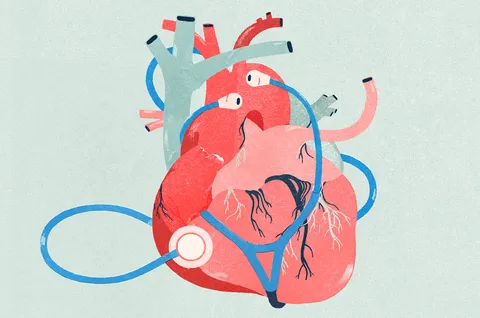Any advice to the youth for healthy ear?

Quick Summary
How to Protect Your Ears
- Protect your ears from loud noise
- Use safe ear cleaning methods
- Be aware of infections and medications that can cause hearing loss
- Avoid head and ear injuries
Additional Tips for Healthy Ears
- Apply sunscreen to your outer ears
- Limit piercing to ear lobes
- Visit a doctor immediately if you notice abnormalities on the outer ear
- If you notice any variation in your hearing, visit an audiologist
Our ears function every single second throughout the day, and sometimes we don’t even realise it. Ears allow us to listen to the voice of our loved ones, enjoy our favourite music, experience the soothing sound of rain or maybe a burst of laughter following a fun-filled session of jokes.
Now imagine if these vital organs of the body stop functioning. How adversely our lives would change!
If you’re pondering over those mentioned above, there are plenty of reasons that could cause irreversible damage to your ear, such as:-
Prolonged exposure to loud noises
- Using unsafe ear cleaning methods like using cotton swabs inside the ear or cleaning them too often
- An untreated ear infection
- Use certain medications such as Aspirin and antibiotics, including Gentamicin, Streptomycin, etc.
- Head and ear injuries
We’ll discuss these issues later in the article and explore ways to keep our ears healthy. But first, let’s understand why ear health and safety are becoming a concern in the present times.
Why Is There A Need To Protect Ears?
- Not taking good care of your ears can eventually lead to permanent hearing loss. Hearing loss is one of the most significant problems experienced by the world today.
- According to WHO, around 63 million people in India are suffering from Significant Auditory Impairment, which means that the prevalence of hearing impairment in India is approximately 6.3%.
What Are the Symptoms of Hearing Loss?
- In case you experience any of the following symptoms, you should seek medical help to understand the problem:-
- Difficulty in hearing others, especially if there is a background noise
- Increasing the volume of television or radio seems necessary
Difficulty in hearing when on the phone
- Continuous feeling that people are mumbling
- Inability to give appropriate answers due to lack of understanding
- Failure to recognise environmental sounds like the chirping of the birds
- Ringing noise in the ears (tinnitus)
Due to hearing loss, a person may distance themselves from loved ones and become socially isolated. For this reason, hearing loss may also affect their mental health and overall quality of life.
So, How to Keep Your Ears Healthy?
Taking care of the ear involves:-
- Maintaining proper hygiene of the ear area
- Protecting it from infections
- Minimising the exposure to loud noises like hearing music at a loud volume to prevent hearing loss
- Once an individual loses the ability to hear, it is irreversible.
Let’s delve into the ways of keeping your ears healthy:-
Protect Your Ears From Loud Noise
- Use Hearing Protection Around Loud Noise: If your work exposes your ears to too much noise, it is advisable to use hearing protection to avoid any damage. Several hearing protection devices are available in the market, including earplugs, ear muffs, and headbands, also known as ear canal caps. These devices can protect you from harmful sound levels without affecting your hearing ability.
- Use Over-the-Head Earphones: If you are a music lover, consider replacing your earplugs with over-the-head earphones as earplugs are directly inserted in the ear canal, which is more dangerous. It would help if you reduced the time you spend listening to music. When the ears remain exposed to loud music for a long time, it can damage the tiny hair cells in the ears that transmit hearing signals to the brain. Moreover, loud music can significantly damage the hair cells and lead to permanent hearing loss.
- Give Your Ears Time To Recover: While working in noisy surroundings, you must give your ears a break at regular intervals. Even if you are attending a concert or at a bar, come outside to relax your ears. Studies have found that the ears need at least 16 hours of rest after a loud night out.
- Safe Ear Hygiene Tips
Here are a few tips to encourage safe hygiene habits for ear care:-
- Don’t Use Q-tips: Clean your ears with a washcloth wrapped around your fingers. Sharp and pointed objects like bobby pins, Q-tips, etc., may seem appropriate for ear cleaning, but they are not safe for the ears. Such things can damage the ear canal or ear drum.
- Visit a Doctor To Remove the Build-Up Ear Wax: Earwax is produced due to an ear cleaning process. It may not seem so, but earwax is there to protect your ears. It is only safe to clean the wax when it comes out on its own. Until then, it is not advisable to stick any object inside the ear canal to remove the wax. Clearesinhe wax in the ear pushes it farther, which can be dangerous for the ears. If the ear wax develops to the extent that it affects your hearing, it is advised to see an ENT specialist for its removal.
- . Don’t Ignore Pain or Itching: If you experience any pain or itching in the ears, visit a doctor for a proper diagnosis as soon as possible. One should not ignore symptoms of ear pain. The doctor will help in finding the best treatment option and get relief from the pain.
- Take Extra Care If You Have Pierced Ears: Clean your earlobe and earrings or studs with rubbing alcohol to avoid infection regularly.
- Awareness About Infections and Medications That Can Cause Hearing Loss
- In some cases, ear infections can cause temporary or permanent hearing loss. Some common examples of ear infections may include:-
- Swimmer’s Ear: It is the infection in the outer canal of the ear. It occurs when water remains in the ears after swimming. People who use hearing aids while swimming is more vulnerable to this infection. A swimmer’s ear can be treated with eardrops as prescribed by the doctor. The doctor may clean the outer ear if necessary, so the eardrops can reach all parts of the infected area.
The following steps will help to avoid the risk of getting a swimmer’s ear:-
- Wear ear plugs before going for a swim to keep them clean and dry.
- Hair sprays and dyes can irritate the ear, so inserting cotton balls in the ears while applying any of these products would protect them.
- Be cautious after undergoing ear surgery.
- Otitis Media is a non-contagious middle ear infectivirusesed by a virus or bacteria. It causes inflammation in the Eustachian Tubes (tubes that run from the back of the throat to the middle of the ear) and causes a blockage. The blocked tubes can eventually lead to fluid build-up in the middle ear. Otitis media can cause temporary deafness in the infected ear as the trapped fluid inhibits the transmission of the sound vibrations. Children are at higher risk of having Otitis Media. One can prevent it by doing the following:-
- Avoid smoking near children.
- Breastfeeding instead of bottle-feeding the infants
In addition,
- Call a doctor immediately if you notifluid drainageuid (pus or blood) from the ears.
- Take medication as instructed by the doctor. Side effects of some medicines like Aspirin, certain antibiotics, non-steroidal anti-inflammatory drugs (NSAIDs), and chemotherapy drugs (Altretamine, Busulfan, and Carboplatin are the most common alkylating agents used in Chemotherapy) can cause hearing loss.
- If you feel ringing in the ears or difficulty in hearing after taking your medicines, consult your doctor.
Avoiding Head and Ear Injuries To Prevent Hearing Loss
- Wear a helmet while riding a bike, cycling, skiing or participating in sports that involve the risk of head injuries.
- Pressure changes in the ears under water or while flying in an aeroplane can also potentially damage your ears. So, don’t forget to:-
Practice proper underwater techniques before going for a scuba dive
- During plane landing, one can do the following to ease the pressure from the ears:- Chewing a gum ,Yawning, Swallowing
- Don't let children fall asleep in an aeroplane when it lands. Even if they cry, it is good as it equalises the pressure.
- Take a decongestant before landing if you have a sinus or a cold.
- Earplugs with special filters are also available to equalise air pressure during an air trip.
Additional Tips For Healthy Ears
- Apply sunscreen to your outer ears while going out in the sun, as the outer ear is highly sensitive to the sun.
- One should limit piercing to ear lobes only. The lobe area has a good blood supply needed to fight infecShootingercing in the ear curves can reach up to the cartilage, which has a low blood supply. If a condition occurs there, it becomes difficult to clear it up.
- You should visit a doctor immediately if you notice abnormalities on the outer ear, like bumps or scaling.
- If you notice any variation in your hearing or someone else has pointed that out to you, visit an audiologist (a specialist in hearing issues) to diagnose the problem.
Takeaway
- The ears are vital organs. But sometimes, we take them for granted in pursuit of momentary pleasures like listening to music or playing video games for long durations at a loud volume. Since hearing loss is irreversible, proper safety precautions must keep our ears healthy.
- Making a few positive lifestyle changes can help save expensive hospital trips in the future. Some of these changes may include - listening to music or watching movies at a maximum of 60 per cent volume of your device. You must also use protective aids to shield your ears if your work exposes you to loud noise and visit a doctor for regular ear checkups.
- Ear-related problems should be diagnosed as soon as possible so that you can seek treatment before it gets too late. If you are dealing with an ear issue or looking for more health tips and advice, contact our Hexa Health experts TODAY!


Last Updated on: 15 July 2022
Reviewer

Dr. Aman Priya Khanna
MBBS, DNB General Surgery, Fellowship in Minimal Access Surgery, FIAGES
12 Years Experience
Dr Aman Priya Khanna is a well-known General Surgeon, Proctologist and Bariatric Surgeon currently associated with HealthFort Clinic, Health First Multispecialty Clinic in Delhi. He has 12 years of experience in General Surgery and worke...View More
Author

An enthusiastic writer with an eye for details and medical correctness. An avid reviewer and publisher. She emphasises authentic information and creates value for the readers. Earlier, she was involved in making ...View More
Expert Doctors (10)
NABH Accredited Hospitals (7)
Latest Health Articles




















